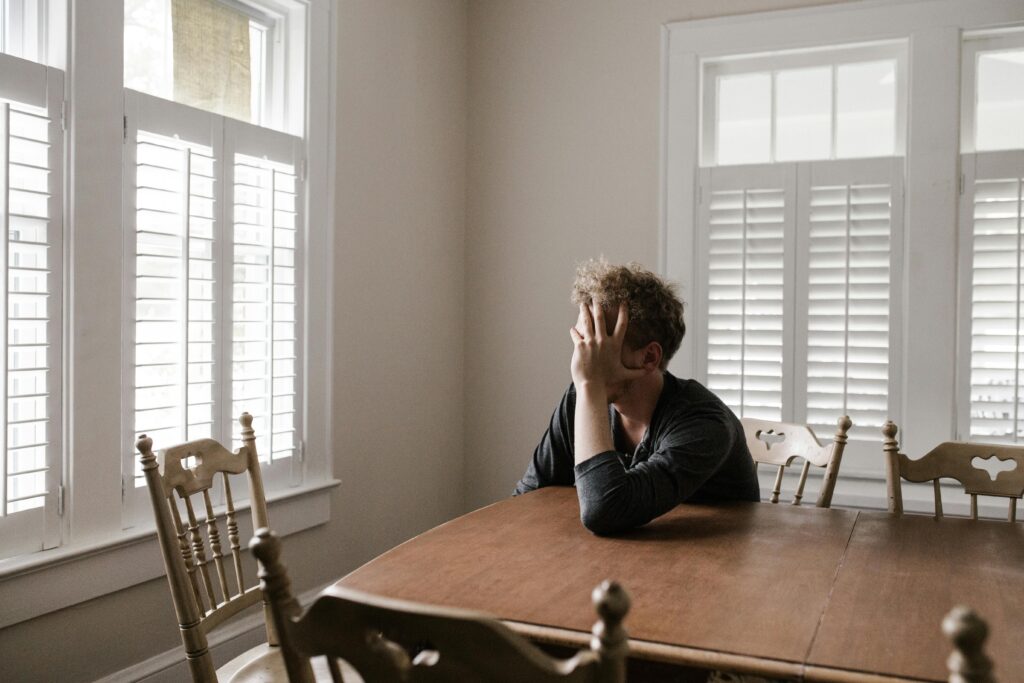
Scrupulosity, often referred to as Religious OCD, is a lesser-known but deeply distressing form of obsessive-compulsive disorder. Individuals with scrupulosity struggle with intrusive thoughts centered around morality, sin, and spiritual purity. These thought patterns often spiral into overwhelming guilt and shame—not because of actions taken, but merely for feeling certain emotions or experiencing certain thoughts.
When Feeling Lonely or Bored Feels Like a Moral Failing
Many people navigating religious OCD experience a mental loop that sounds like this:
“If I feel lonely or bored, that means something is wrong with me.”
This thought pattern is especially common among individuals with a history of sexually compulsive behaviors, such as pornography use or masturbation, particularly when those behaviors are connected to past feelings of guilt or spiritual failure. Over time, loneliness and boredom themselves can become triggers—not because they’re inherently harmful, but because they’ve been associated with past relapses or “slipups.”
The fear then isn’t just about the behavior—it’s about the emotion itself.
“If I feel this way, I’m already sinning.”
This belief can turn natural human emotions like loneliness into evidence of moral or spiritual failure. This is the mental trap of scrupulosity.
Scrupulosity is Not About Sin—It’s About Anxiety
At its core, scrupulosity is an anxiety disorder. It convinces people that any imperfection in thought, emotion, or action could separate them from their faith, their values, or even their salvation. But what’s truly happening is a case of anxiety-driven overthinking, not actual moral wrongdoing.
So, what can we do when these thoughts start to spiral?
Reframing Loneliness and Boredom as Emotional Information
Instead of trying to suppress emotions like boredom or loneliness—or interpreting them as red flags for failure—we can start seeing them for what they truly are: signals.
Loneliness doesn’t mean something is wrong with you.
It simply means you’re wired for connection—and your body and mind are telling you it’s time to reach out.Boredom isn’t a setup for failure.
It’s an invitation to engage with something meaningful or creative.
Here’s a More Compassionate Response:
When you notice yourself feeling lonely or bored, pause and get curious rather than critical. Ask yourself:
“What is this emotion trying to tell me?”
“Who can I reach out to?”
“What do I actually need in this moment?”
You might find that a simple text to a friend, a call with your partner, or getting out for a walk is exactly the antidote to that anxious spiral. Connection, not perfection, is the goal.
Breaking the Shame Cycle
Scrupulosity often thrives in isolation and silence. That’s why it’s crucial to recognize that:
Feeling emotions is not sinful.
Being human doesn’t disqualify you from your values or faith.
Shame only keeps you stuck—but curiosity and compassion move you forward.
Final Thoughts
Managing scrupulosity and religious OCD is not about erasing every unwanted thought or emotion—it’s about changing your relationship to them. By treating your emotions as information rather than indictments, you open up space for healing, connection, and genuine spiritual growth.
If you’re struggling with religious OCD or anxiety-driven overthinking, you’re not alone—and help is available. Therapy that integrates spiritual sensitivity with evidence-based approaches can offer powerful relief and insight.

No responses yet